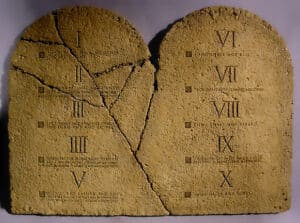
We are moderns that believe in magic.
So I wrote recently, about New Copernicans. I cited Doctor Strange, Elizabeth Gilbert, and yes, Harry Potter. Thus I was intrigued to read Gracy Olmstead’s article in The Federalist, “Harry Potter Offered Millennials Enchantment in a Disenchanted World.” However, on closer reading my stomach turned sour.
Olmstead makes the correct observation quoting Lara Prendergast in The Spectator, “Harry Potter may be a literary fantasy but for many it is also a substitute religion in a secular age.” But then she turns snarky, suggesting that this “reflects a spiritual vacuum” experienced by millennials. She continues, “Many millennials dwell in a secularized world, one increasingly shed of magic and enchantment. The Western world is increasingly agnostic, while the millennial generation itself is populated with so-called “nones”—religiously unaffiliated, and uninterested in organized religion.”
We are moderns that believe in magic.
Actually, the evidence points in exactly the opposite direction. New Copernicans are not disenchanted secularists, but enchanted secularists. This is an option Olmstead completely misses in her binary view of the universe. The reason Harry Potter resonates so deeply is that New Copernicans do not embrace the closed immanent perspective of New Atheists, but an open immanent one that is haunted by the possibility and potential of a larger world of meaning and spirits. Secular, yes. But also: magic, yes.
Not only does Olmstead confuse frames, she blurs the line between culture and politics. Granted, she is writing for a conservative political publication; as such perhaps she has to take her unfortunate stabs at Rowling’s progressive views on the LGBT community, suggesting that the Potterverse morphs into a progressive tale of good and evil: “Hogwarts would have been a ‘safe place’ for LGBT students.”
And then to put the cherry on her snarky sundae, she puts down the magical aspirations of Harry Potter readers and viewers as childish. Quoting Prendergast, she writes, “For all the joy that Harry Potter brings to its millions of readers, the world cannot be sorted by a magical hat.” Olmstead concludes, “Millennials are just doing what most religious people do when they cite a religious text in response to a political problem.” So politics trumps religion, and technical rationalism the imagination.
Who’s being secular now?
Rather than warning that “children’s books can’t be our Bibles,” perhaps she should consider more deeply Jesus’ admonition, “I tell you the truth, unless you change and become like little children, you will never enter the kingdom of heaven” (Matthew 18:3). Her initial insight does not make up for the usual litany of snarky millennial putdowns. Get the frame wrong, and everything goes off the rails.
New Copernicans know better. The metaphor of the Potterverse points not to childish fairy tales but to adult realities. Narnia was not a childish world in C.S. Lewis’ mind. It was a truer and deeper reality. Often, magical fiction only points toward a deeper consciousness—and this is as true for millennials as it has been for generations.
John Seel is a consultant, writer, cultural analyst, and cultural renewal entrepreneur. He is the founder of John Seel Consulting LLC, a social impact consulting firm working with people and projects that foster human flourishing and the common good. The former director of cultural engagement at the John Templeton Foundation, he is a national expert on millennials and the New Copernicans. He has an M.Div. from Covenant Theological Seminary and a Ph.D. in American Studies from the University of Maryland (College Park). He and his wife, Kathryn, live in Lafayette Hill, PA. He directs the New Copernican Empowerment Dialogues at The Sider Center at Eastern University. This post originally appeared on his blog, New Copernican Conversations.


